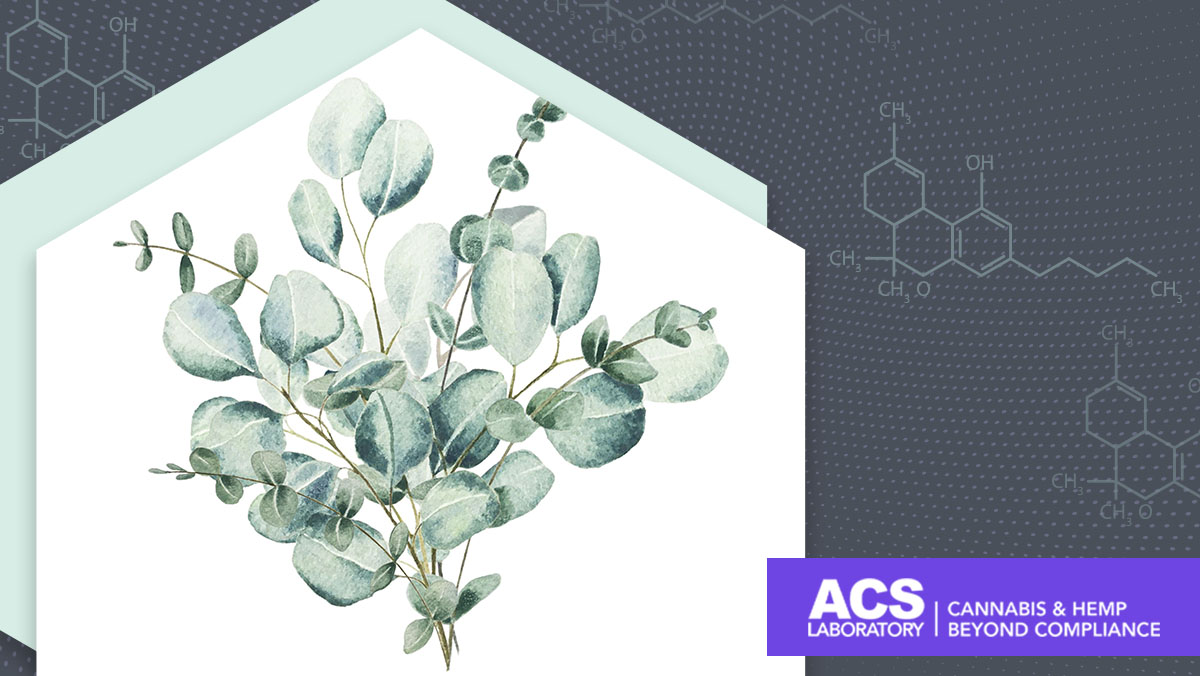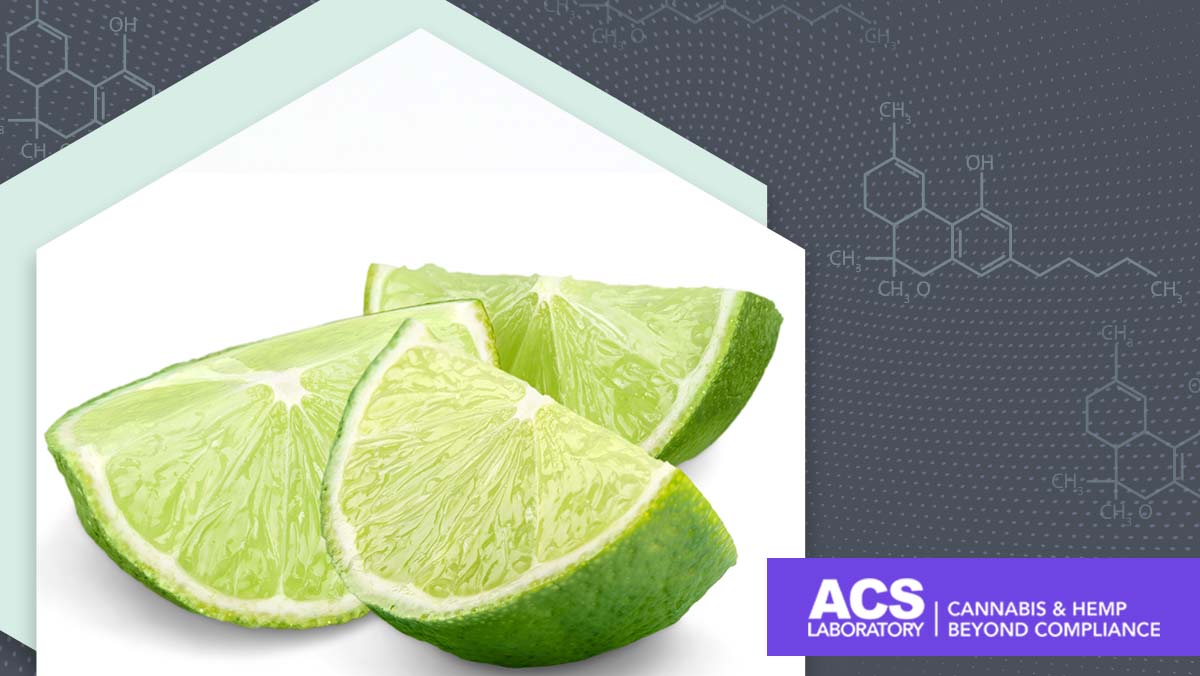Terpene Tuesdays: Everything You Need To Know About Fenchyl Alcohol Flavor, Fragrance, And Health Benefits
Basil’s fresh, verdant scent is a common feature of many cleaning products and perfumes. A terpene called fenchol or fenchyl alcohol is typically one of the core ingredients. Fenchol is an essential oil that appears in citrus fruits, basil, eucalyptus leaves, and cannabis strains. But fenchol does more than smell fantastic. This phytochemical displays powerful therapeutic potential.
Here we’ll explore everything you need to know about fenchyl alcohol benefits, aromatic profile, and how it impacts your favorite cannabis strains.
What Do Terpenes Like Fenchyl Alcohol Do?
Terpenes are phytochemicals responsible for giving plants their aromas, from the soothing scent of lavender to the earthy smell of camphor. Terpenes also serve many other functions; they protect plants from predators and attract pollinators like bees and birds. There are approximately 30,000 naturally occurring terpenes, with over 150 in the cannabis plant alone.
In cannabis, every strain develops a unique terpene profile that creates its distinct fragrance, flavor, and therapeutic properties. Terpenes also function alongside cannabinoids like CBD and THC in what is known as the entourage effect to influence the strain’s psychoactive profile. For example, dominant terpenes like linalool and myrcene can enhance a strain’s sedative properties, while limonene and pinene are more energizing terps.
What Is Fenchol?
Fenchol, also called endo-Fenchol, Fenchol, Fenchol, exo-α-Fenchol, and α-Isofenchol, is a secondary terpene that appears less frequently than prominent terpenes like limonene and caryophyllene. This phytochemical is an isomer of the terpene borneol and is considered a “monoterpene” due to its molecular structure of two isoprene units.
Monoterpenes are essential oils that naturally occur in plants. Typically, they contain powerful wellness benefits due to their antioxidant-rich properties. Monoterpenes like fenchol also act as broad-spectrum antimicrobials to help plants and people fight off infection.
Fenchyl Alcohol And The Entourage Effect
The "entourage effect" occurs when all of the cannabis plant’s phytochemicals, such as cannabinoids, terpenes, and flavonoids, work together in synergy to produce even more significant therapeutic benefits than individually. While many believed that cannabis' healing properties were solely due to its major cannabinoids, CBD and THC, research now tells us that it's actually due to its full spectrum of plant compounds.
Fenchyl Alcohol Research & Benefits
The full benefits of fenchol have yet to be revealed, but various clinical studies from all over the globe show promise for this fresh, earthy-scented monoterpene. So far, these studies conclude that fenchol exhibits antimicrobial, antibacterial, antioxidant, and analgesic or pain-relieving effects.
Antimicrobial: Examining essential oils from the Himalayan plant Z. alatum, or rattan pepper, researchers concluded that monoterpenes, including fenchol, showed significant antimicrobial activity against phytopathogenic fungi as well as harmful bacteria.
Antioxidant: The same study that showed significant antimicrobial properties found that fenchyl alcohol effectively aids in the process of destroying unstable, harmful cells in the body.
Antibacterial: In 2007, Turkish researchers conducted a study to reveal several terpene's impacts against 63 bacterial strains derived from plant, food, and lab-based origins. The results showed that monoterpenes like fenchol exhibited varying degrees of antibacterial activity.
Analgesic: As a pain-relieving agent, a 2014 study in Japan revealed that fenchyl alcohol might relieve pain by inhibiting the TRPA1 receptor - an essential protein in the body's system that signals pain.
Neuroprotectant: A 2021 pre-clinical study from the University of South Florida found that fenchol can help protect the brain against Alzheimer's disease. This action functions via a sensing mechanism associated with the gut microbiome by reducing neurotoxicity in the Alzheimer's brain.
Do Terpenes Like Fenchyl Alcohol Get You High?
The short answer is no. Fenchol alone will not alter the mind like THC. However, terpenes interact with brain receptors, like THC, to produce psychoactive effects like calm, relaxation, energy, and sedation. As a result, terpenes like fenchol influence each strain’s distinct experience profile.
Many terpenes act as a sedative, but fenchol does not. Instead, it may be somewhat energizing though it is not a stimulant. More research is needed to understand fenchol's complete list of effects and benefits.
Sources Of Fenchyl Alcohol In Nature
Fenchol naturally occurs in Aster, basil, citrus fruits, eucalyptus, wild celery, and plants. Fenchol can be consumed through foods or absorbed through its airborne aroma. Due to its robust and refreshing smell, fenchol is present in shampoos, soaps, cleaning products like detergents, and foods.
Which Cannabis Strains Have The Most Fenchyl Alcohol?
Because fenchyl alcohol is a secondary terpene, it's less common than primary terpenes like limonene. However, fenchol reportedly has its highest concentrations in OG Kush and Banana Kush.
The "kush" family of strains is purportedly derived from Hindu Kush. OG Kush, in particular, is one of the most popular cannabis strains. Due to its high concentrations of caryophyllene, limonene, and fenchol, its aroma is pungent and funky, with hints of lemon and grass. Users say this fenchol strain offers a balanced high with relaxing effects.
The Bottom Line
Fenchyl alcohol or fenchol is a secondary terpene that occurs widely in the plant kingdom. Its earthy, herbaceous, slightly citrusy aroma offers a refreshing scent to various consumer product categories, from perfumes and candles to cleaning products. In cannabis plants, fenchol is most common in OG Kush, a popular strain exhibiting earthy aromas and relaxing properties. Recent research indicates this herby terp delivers antimicrobial, antioxidant, and analgesic properties that can support greater health and wellness.
ACS Laboratory tests for fenchyl alcohol along with 37 other terpenes. Learn how to differentiate your products by testing for cannabis terpenes today!









.png)
.png)
.png)
.png)
.png)